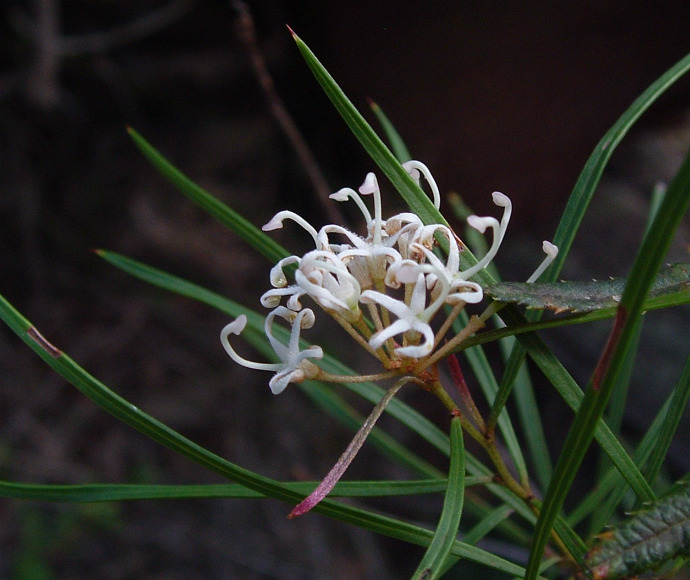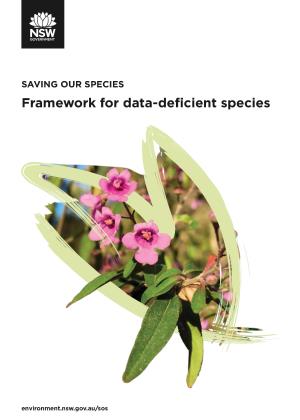 Species are allocated to the data-deficient management stream when there is not enough knowledge about their ecology, distribution, threats or management needs to inform an effective management strategy. Typically, data-deficient species need investment in targeted research or survey to fill those knowledge gaps and determine the best approach to on-ground management.
Species are allocated to the data-deficient management stream when there is not enough knowledge about their ecology, distribution, threats or management needs to inform an effective management strategy. Typically, data-deficient species need investment in targeted research or survey to fill those knowledge gaps and determine the best approach to on-ground management.
Examples in this category include small flower grevillea and the little whip snake. Research or surveys of these species are a priority for the Saving our Species program.
Current work on these species aims to identify major gaps in our knowledge and set survey and research priorities.
Once we understand more about a data-deficient species, we can move it to another management stream and develop a conservation strategy outlining its management requirements.
The Framework for data-deficient species (PDF 2.4MB) sets out the data-deficient objectives and how species are allocated to this management stream.
Extinct (in New South Wales or Australia)
 The data-deficient species stream includes species that we presume are extinct in New South Wales, such as the star finch.
The data-deficient species stream includes species that we presume are extinct in New South Wales, such as the star finch.
If a species listed as extinct is rediscovered in the wild, we look at how we can increase our knowledge about it.
Once we learn more about the species, we can potentially develop a conservation strategy and move it to another management stream.



